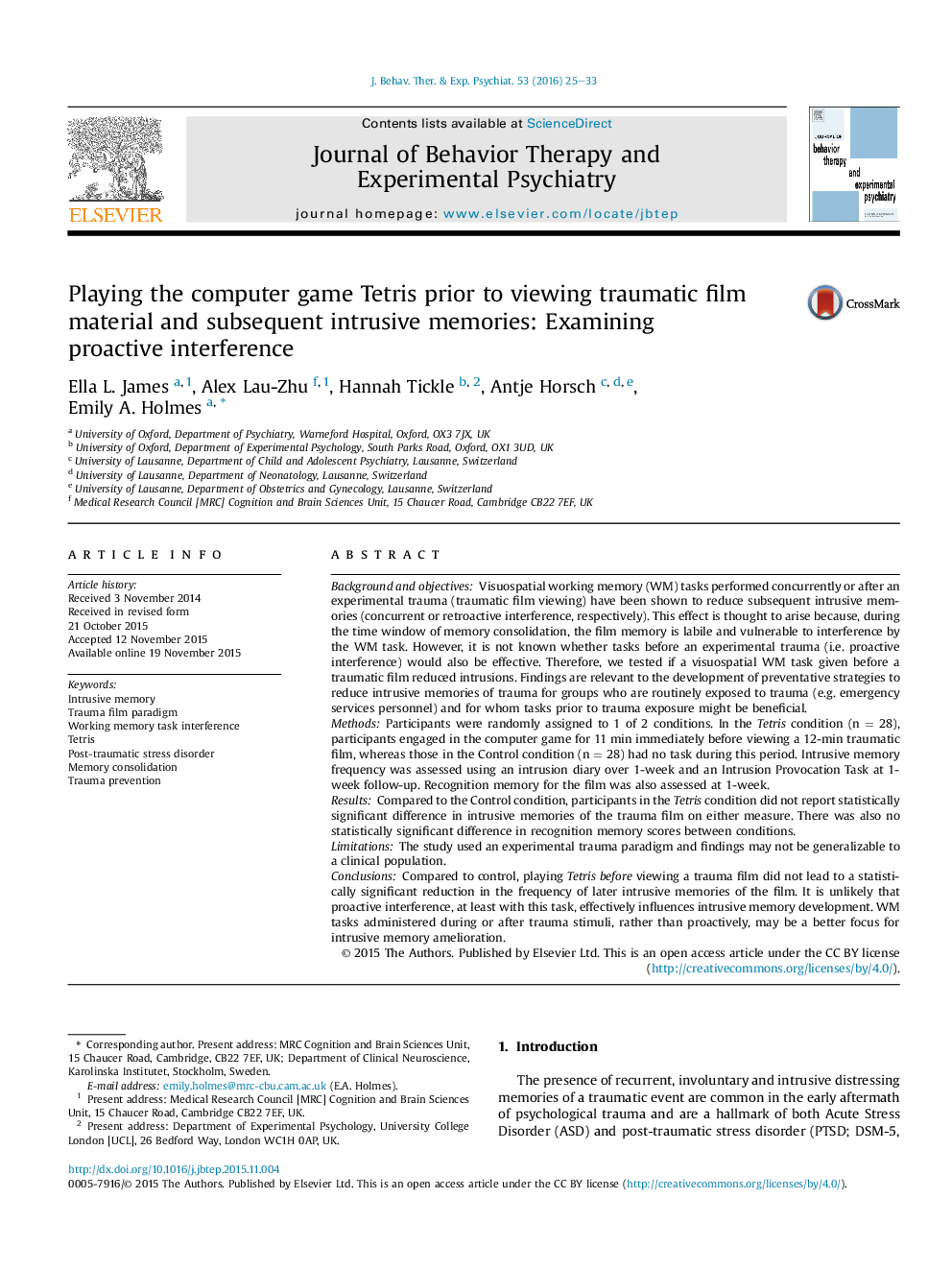| کد مقاله | کد نشریه | سال انتشار | مقاله انگلیسی | نسخه تمام متن |
|---|---|---|---|---|
| 5039037 | 1473063 | 2016 | 9 صفحه PDF | دانلود رایگان |
- When trauma is predictable (e.g. for emergency workers) preventative interventions delivered before trauma would be useful.
- Could a visuospatial working memory (WM) task before analogue trauma reduce intrusions via proactive interference?
- Participants played Tetris or had no task prior to viewing a traumatic film.
- There was no statistically significant difference in intrusive memory frequency of the trauma film between both groups.
- WM tasks delivered during/after trauma stimuli, rather than before, may be a better focus for intrusive memory amelioration.
Background and objectivesVisuospatial working memory (WM) tasks performed concurrently or after an experimental trauma (traumatic film viewing) have been shown to reduce subsequent intrusive memories (concurrent or retroactive interference, respectively). This effect is thought to arise because, during the time window of memory consolidation, the film memory is labile and vulnerable to interference by the WM task. However, it is not known whether tasks before an experimental trauma (i.e. proactive interference) would also be effective. Therefore, we tested if a visuospatial WM task given before a traumatic film reduced intrusions. Findings are relevant to the development of preventative strategies to reduce intrusive memories of trauma for groups who are routinely exposed to trauma (e.g. emergency services personnel) and for whom tasks prior to trauma exposure might be beneficial.MethodsParticipants were randomly assigned to 1 of 2 conditions. In the Tetris condition (n = 28), participants engaged in the computer game for 11 min immediately before viewing a 12-min traumatic film, whereas those in the Control condition (n = 28) had no task during this period. Intrusive memory frequency was assessed using an intrusion diary over 1-week and an Intrusion Provocation Task at 1-week follow-up. Recognition memory for the film was also assessed at 1-week.ResultsCompared to the Control condition, participants in the Tetris condition did not report statistically significant difference in intrusive memories of the trauma film on either measure. There was also no statistically significant difference in recognition memory scores between conditions.LimitationsThe study used an experimental trauma paradigm and findings may not be generalizable to a clinical population.ConclusionsCompared to control, playing Tetris before viewing a trauma film did not lead to a statistically significant reduction in the frequency of later intrusive memories of the film. It is unlikely that proactive interference, at least with this task, effectively influences intrusive memory development. WM tasks administered during or after trauma stimuli, rather than proactively, may be a better focus for intrusive memory amelioration.
Journal: Journal of Behavior Therapy and Experimental Psychiatry - Volume 53, December 2016, Pages 25-33
